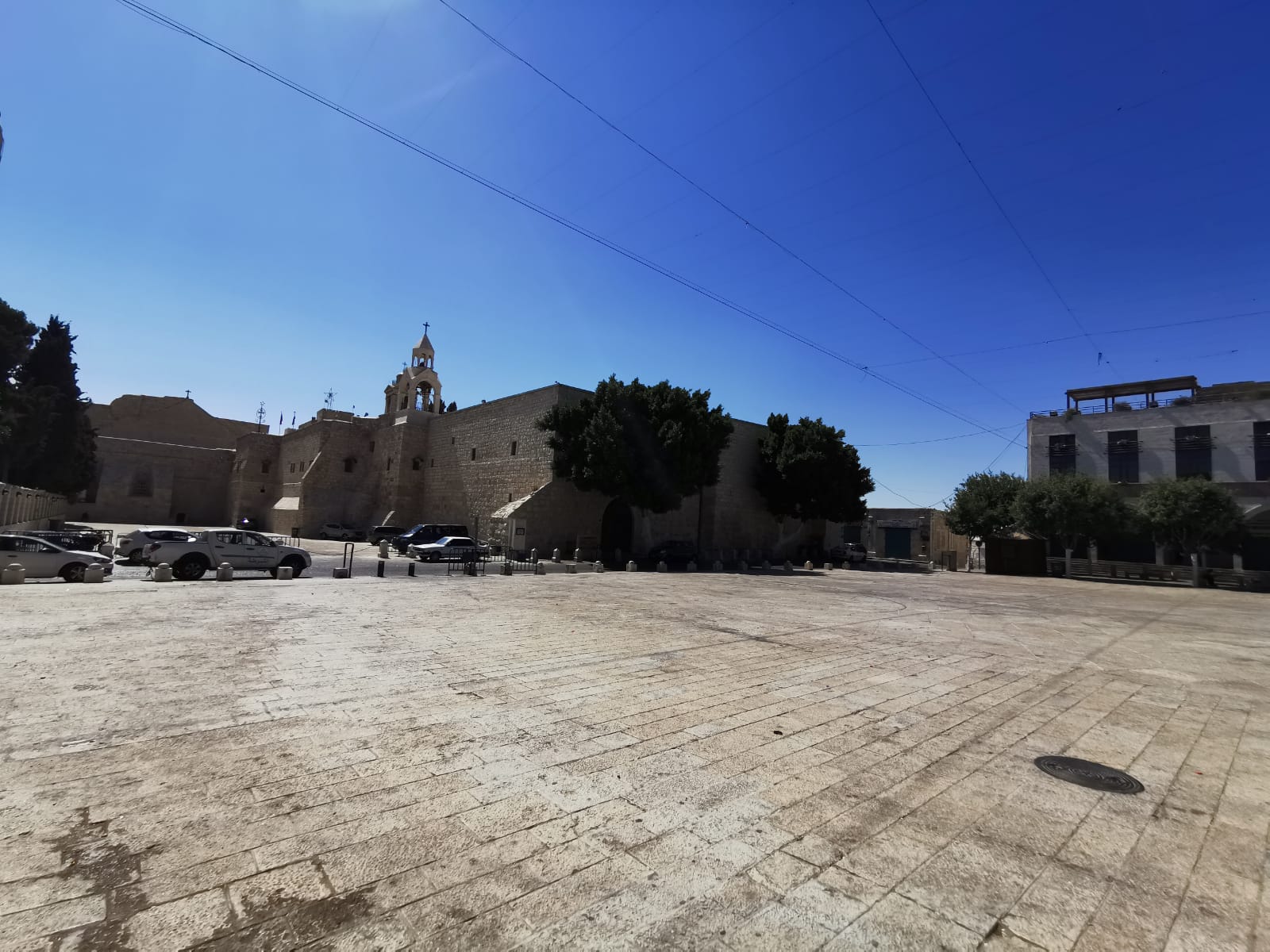
Bethlehem: fighting the pandemic with solidarity
The health and economic crisis in Israel and Palestine is worsening because of Covid-19. “In Israel there is a daily growth of about 1,200 cases and in Palestine of over 400” says Vincenzo Bellomo, head of the projects of the Association pro Terra Sancta in Bethlehem. The Manger Square has seen neither tourists nor pilgrims since 5 March. The commitment of the pro Terra Sancta Association and the local parish to stay close to the most vulnerable.
“The situation is dramatic. After an initial phase with few contagions and a long lockdown from March to mid-May, we now find ourselves facing an important number of positive cases. In the last two weeks we are witnessing a scary escalation. In Israel there is a daily growth of about 1200 cases and in Palestine of over 400″. This is how Vincenzo Bellomo, head of the Pro Terra Sancta Association projects in Bethlehem, describes what is happening in Israel and Palestine because of the Covid-19 pandemic. Yesterday evening during an online meeting promoted by the Associazione pro Terra Sancta, Bellomo, linked from Bethlehem, took stock of the situation in the two countries where, he explained, “the respective governments have ordered a new closure for some activities. In particular, in Palestine the state of emergency was reintroduced two weeks ago until 5 August. The authorities have asked the traders for a further closure, obtaining in exchange only street protests. Any further stop to activities would be devastating for the already asphyxiated Palestinian economy”.
Cases on the rise. According to Oms, as of 16 July the Covid-19 cases in Israel are 42602, 1573 new cases and 372 dead. In Palestine, instead, there are 8153 cases, 419 new cases, 47 victims. “In particular – said Bellomo – in Bethlehem there are over 500 active Covid cases, in nearby Hebron there are over 5000 cases. Many people refuse tampons because they are afraid of being out of work. However – explained the manager – the positive factor is given by the young age of a large part of the Palestinian population for which many cases are asymptomatic and do not require special care at the moment. The Government’s concern remains high that it will not be able to manage the exponential growth of Covid-19. There are only 50 beds in Bethlehem“.
Bethlehem’s economy collapses. The economic crisis in the Palestinian Territories has also been exacerbated by the blockade of pilgrimages following the restrictions due to Covid-19. “About 80% of the Bethlehemite population – said Bellomo – works in tourism and services. Since March 5 everything is stopped: there are neither tourists nor pilgrims.
Many families who worked in the hotel, craft, tourism, catering industry are without a salary and do not know how to get ahead. The economic situation is more serious than during the Intifada also because the Covid-19 has practically stopped the growing trend of pilgrimages that had been going on for at least two years. Many, thanks to the work that was not lacking, were also indebted to ensure a better life. Now they are all in the middle of a road”. It’s no better for the Bethlehemites who cross the Israeli checkpoint every day to go to work in and around Jerusalem. “The fear of contagion and therefore of losing their jobs has led many of them to stay in Israel for more than two weeks,” Bellomo revealed. Covid’s effects also on the ecclesial life of Christian communities: “It is sad to see the local parish without its faithful. It will take time before it returns to be that place of encounter and ecclesial life that it was before the pandemic“. The hope of a recovery is also placed in the probable reopening, next Sunday, of the Basilica of the Nativity even if with limited numbers. The Milk Grotto and the Shepherds’ Fields, two Bethlehem holy places much visited by pilgrims and dear to local Christians, remain closed instead”.
Solidarity projects. From the parish and above all from the Pro Terra Sancta Association the main solidarity projects that want to deal with the situation are starting. “In Palestine there is no welfare state but only attempts at welfare – admits Bellomo -. The same applies to the pension system. Health care is very fragile and even schools do not offer high standards, which is why families send their children to private institutions paying a tuition that they are now unable to pay. Hence the problems of Christian schools that risk closure”. “Covid has aggravated the conditions of those who were already vulnerable, such as the elderly and disabled, and opened deep crises in families, young people, women. We have strengthened the Antonian Society for the elderly and carried out projects such as that of the masks that some Bethlehemite women are involved in. Thanks to the purchase of sewing machines we produce masks that we are distributing for free in Nazareth, Jerusalem and Bethlehem. Finally, we are defining “Dar al Majus” (in Arabic ‘The House of the Magi’), a structure acquired thanks also to the CEI and destined to become a vocational training centre where young people can study for a job and build up hope. If you have a house and a job you don’t think about emigrating – concludes Bellomo -. Work and culture will be the pillars of this Centre”.
Daniele Rocchi (AGENSIR)